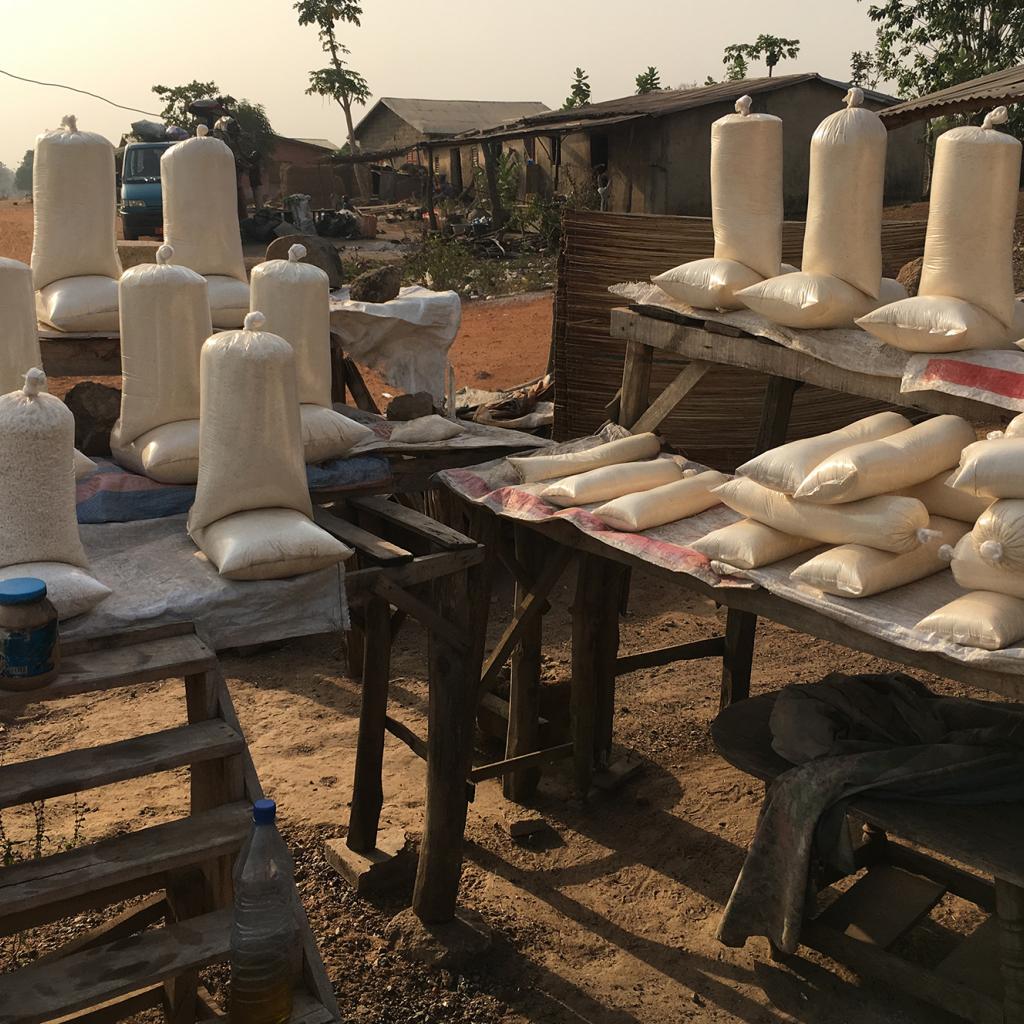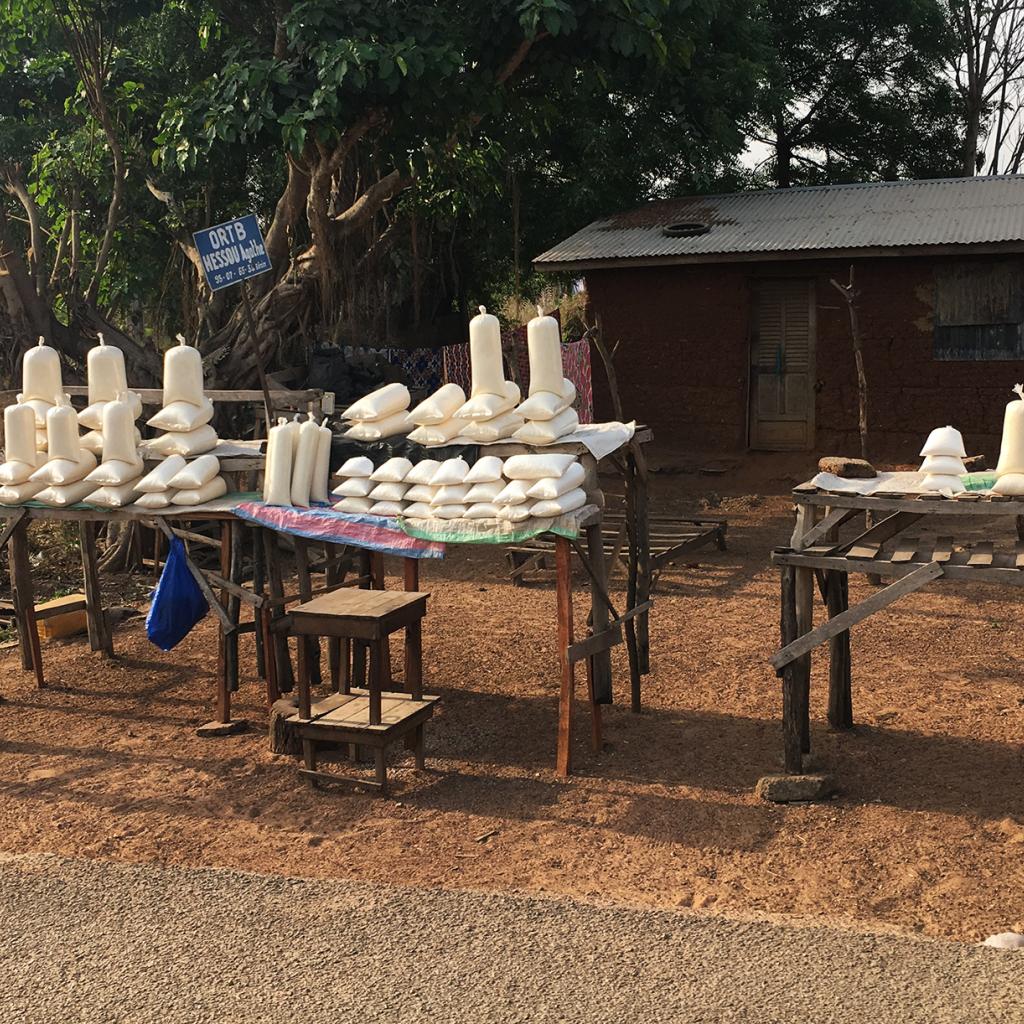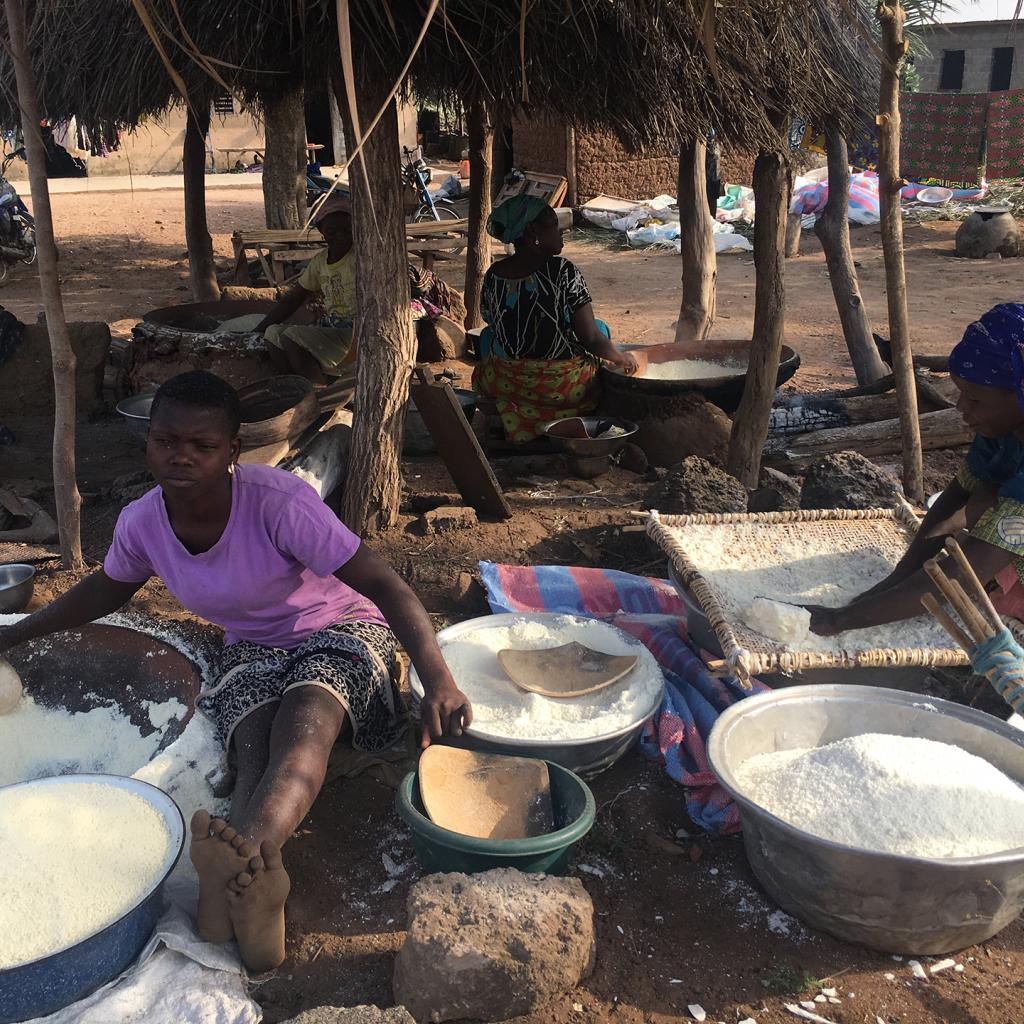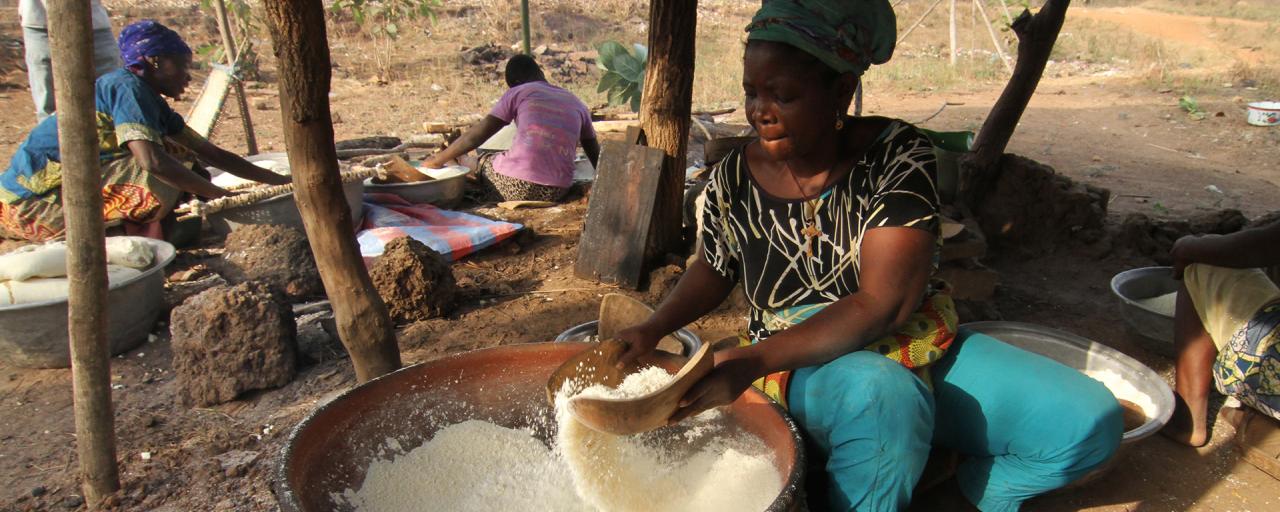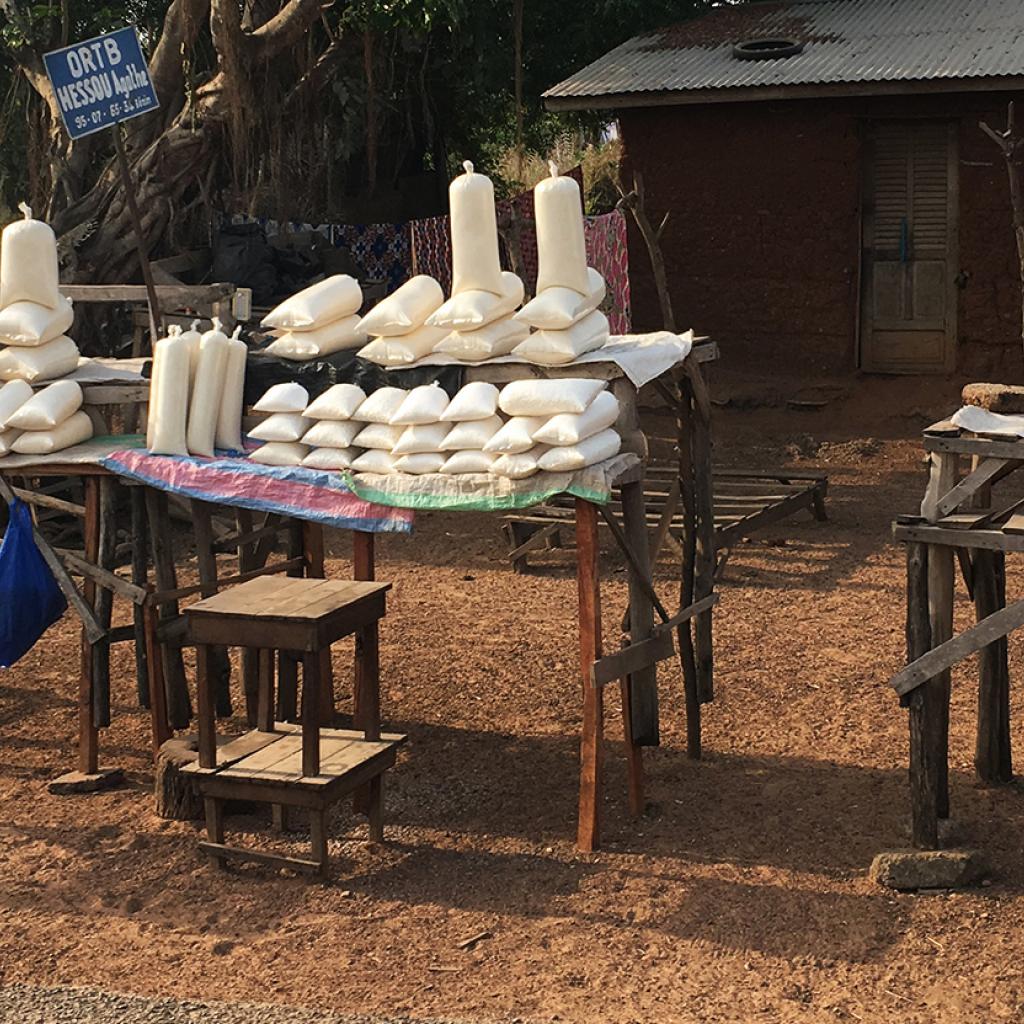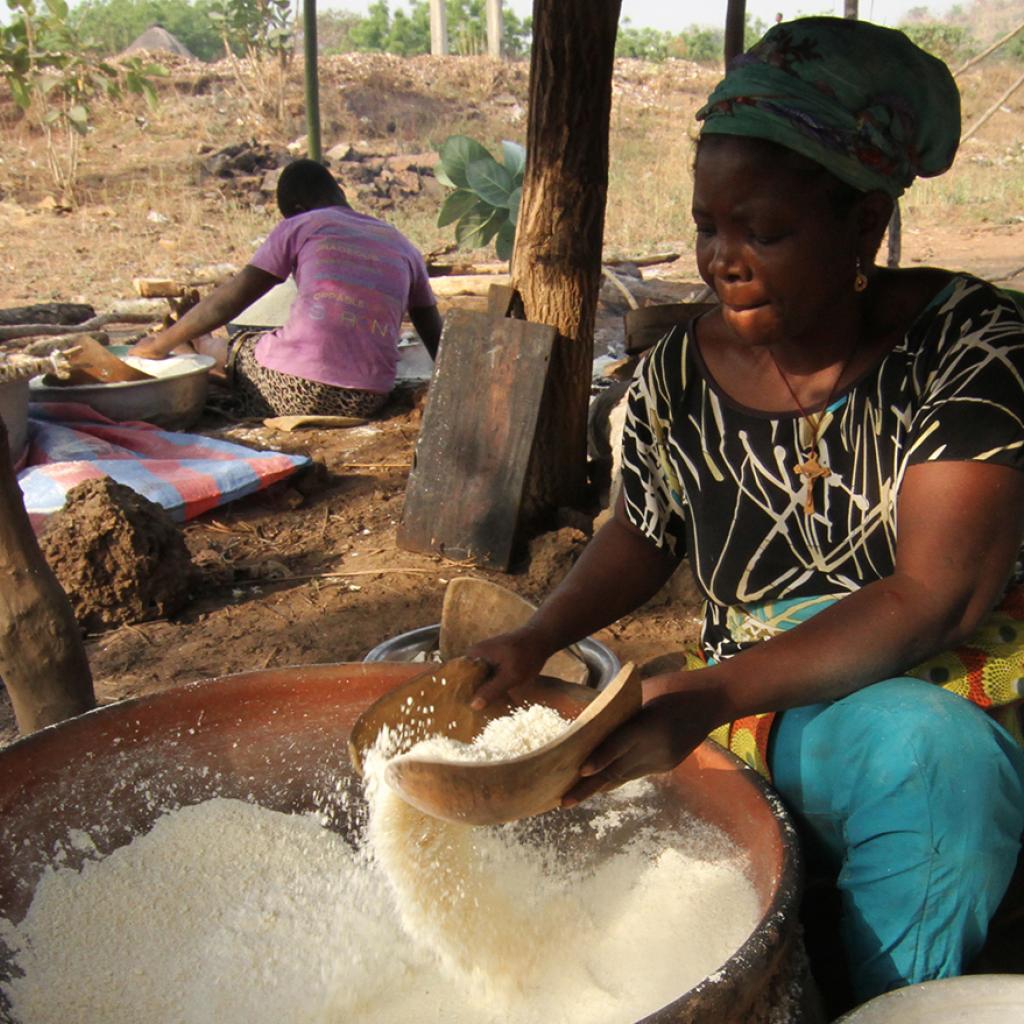The Aja ethnic group was born from the fusion of three different populations: the Alu, the Azanu and the Aja, the first two are of Guãŋ origin and the third of Yorùbá origin.
In the past they were skilled artisans in the production of iron and farmers.
Today the Aja are essentially peasants, and are specialized in the cultivation of the yam, a tuber rich in starch produced by plants of the Discorea family, a very resistant plant that is not affected by seasonality and therefore provides products throughout the year.
The consumption of yam is widespread in Africa, where this tuber is a very important source of protein.
The yam tuber is cooked, in different ways, before being eaten, it can be boiled, or fried or roasted on hot coals.
Each house has a kitchen where dishes based on yam are prepared, usually they are outdoor environments where wood is used for cooking.
In Togo the yam is dried and then reduced to powder that is used to prepare soups, mashed potatoes and a kind of polenta called fufu.
The "national" dish of West Africa is precisely the fufu, that in Togo is prepared with white mashed yam, reduced to a pasty consistency and accompanied by different sauces, often very spicy.
The yam is cut into cubes, crushed and kneaded in the mortar by women, using a long wooden stick, then the mixture is cooked for about twenty minutes in salted water.
Along the streets of Togo, the Aja women often come together to make yam flour and then sell it in local markets.
It is a hard and long work, the tubers are cut and pressed, to deprive them of as much water as possible, afterwards the obtained paste is reduced to flour, sifted and cooked in large pots placed on the wood fire, to permanently remove even the last trace of moisture.
The flour that they get is packaged in large bags and sold both at the roadside and in the markets of large cities, where this work is impossible to do in modern homes.
Various traditional dishes are cooked with yam flour.
Photogallery
